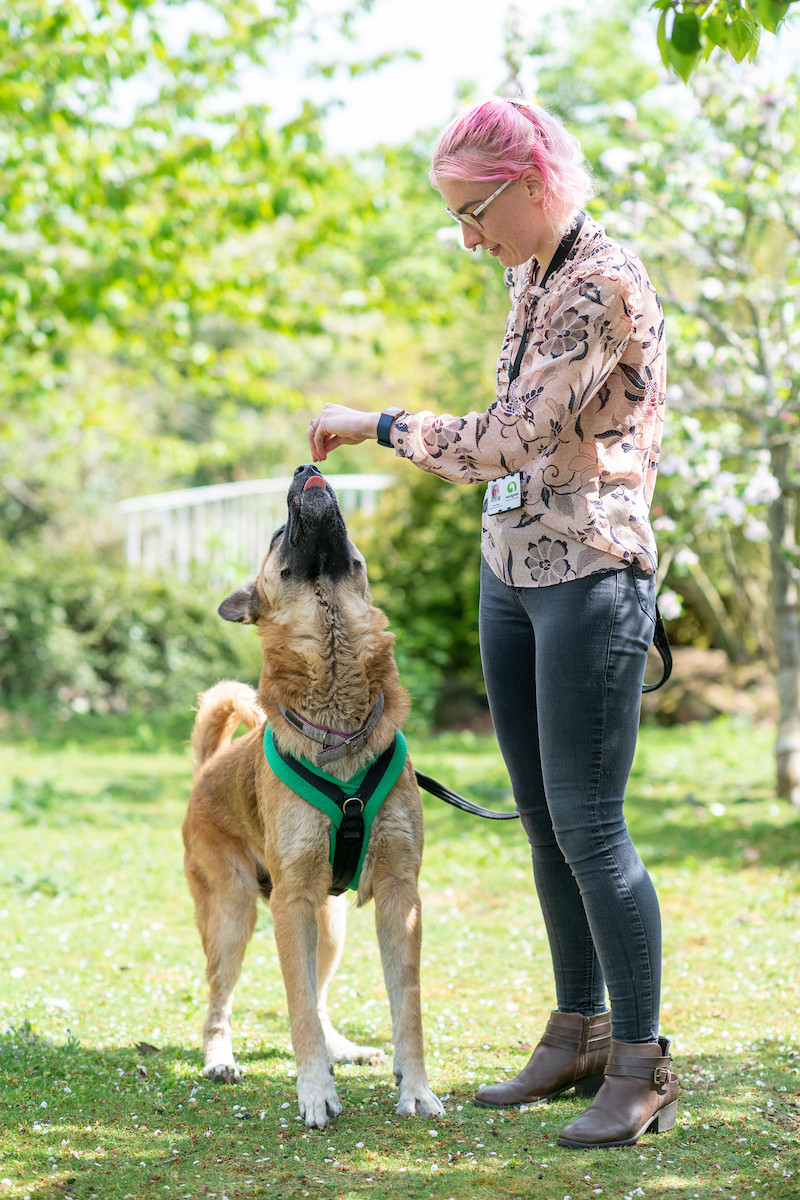
Chloe asks
My dog won't stop whining, what should I do?
If your dog is young, they may be teething and chewing, this is very normal at the developmental stage.
Alternative activities to chewing may include a stuffed Kong – put something tasty like dried liver, ham, or cheese into the hole at the top, and then fill the rest of it with your dog’s kibble soaked in water.
If your dog simply enjoys chewing, or is a bit bored, try giving them natural chews such as pizzles or tripe sticks, or tough toys like Nylabones and Kongs which are all fun for your pet to get their teeth into. See our article on ‘how to stop your dog getting bored’ for more ideas!
The cardboard box challenge – wrap treats in an old towel or a toilet roll tube and put them inside a box. Your curious canine will love sniffing out the treats!
Every time you catch your dog chewing something they shouldn’t be, try tempting them away with a more suitable item. You might have to repeat this a few times! Eventually they’ll learn and make sure you give them plenty of praise when they chew the right things!
Scatter feeding – throw some of your dog’s dinner around parts of the garden, or around the kitchen floor, they’ll love the fun of finding their tasty reward!
If your dog is destructive while they are left home alone, you might need more support to help them, so please contact us for more advice. Our check out our article on dog separation anxiety.
Before dogs became family pets, they used their noses to sniff and hunt out food in the wild. Most dogs still have this natural desire and find it fun exploring and working out how to get their meals!
"I love chewing, it’s great for my teeth! I enjoy lots of different textures and anything with my reach can be fun to chew, unless you teach me otherwise."
Buy a selection of tough toys and chews, and remember all dogs are different, so try a few options to see what your pet loves to chew the most!
If your dog gets bored easily, try making feeding time more fun, with a sniff it out challenge!
Get in touch with a professional if your dog is chewing too much, or stressed when being left at home alone.
I was struggling with my dog's anxiety, especially when we had to leave the house. Thanks to Woodgreen's advice, I've made some changes that have worked wonders. By sticking to a consistent routine, my dog knows what to expect each day, which has significantly reduced her anxiety.
This advice really helped me and my new pup! I tried teaching recall without your guidance and struggled. Woodgreen's step-by-step dog training videos break each action down for you and I'm happy to say we finally made progress!

